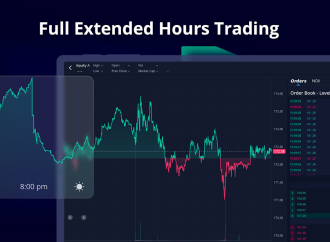Introduction If you thought that long Covid was just about respiratory issues, think again! While the spotlight has been on breathing difficulties and fatigue, a growing number of patients are grappling with gastrointestinal problems. From bloating and constipation to severe abdominal pain and nausea, these symptoms can have a profound impact on quality of life.
Introduction
If you thought that long Covid was just about respiratory issues, think again! While the spotlight has been on breathing difficulties and fatigue, a growing number of patients are grappling with gastrointestinal problems. From bloating and constipation to severe abdominal pain and nausea, these symptoms can have a profound impact on quality of life. So, let’s dive into the world of gut health and explore how this hidden aspect of long Covid is affecting patients in ways we may not have fully realized before.
The Impact of Long Covid on the Gastrointestinal System
The gastrointestinal system is a complex network of organs and tissues that work together to digest food and absorb nutrients. The stomach and intestines are lined with a layer of mucus that protects them from the acidic digestive juices. This mucus layer also contains good bacteria that help to break down food and keep the intestines healthy.
Covid-19 is a viral infection that primarily affects the respiratory system, but it can also cause gastrointestinal symptoms in some patients. These symptoms can range from mild, like nausea and diarrhea, to more severe, like inflammation of the stomach lining (gastritis) or intestinal damage (enteritis). In severe cases, Covid-19 can lead to a life-threatening condition called pancreatitis, which is inflammation of the pancreas.
Patients who experience gastrointestinal symptoms from Covid-19 may have trouble digesting food and absorbing nutrients. This can lead to weight loss, malnutrition, and other health problems. Gastrointestinal issues can also be extremely painful and disruptive to a person’s quality of life.
There is still much unknown about the long-term effects of Covid-19 on the gastrointestinal system. More research is needed to understand how common these issues are in patients with long covid and what treatments are most effective for managing them.
Symptoms of Long Covid-Related Gastrointestinal Issues
There are a number of gastrointestinal symptoms that have been associated with long covid, including nausea, vomiting, diarrhea, and abdominal pain. These symptoms can be debilitating and make it difficult for patients to carry on with their normal activities. In some cases, these symptoms can lead to weight loss and malnutrition.
patients with long covid may also experience GERD (gastroesophageal reflux disease) and IBS (irritable bowel syndrome). These conditions can cause significant discomfort and may interfere with a person’s ability to eat and digest food properly. Long covid patients may also suffer from malabsorption, which can lead to nutrient deficiencies.
If you are experiencing any of these symptoms, it is important to seek medical help. Your doctor can provide you with the necessary treatment to help alleviate your symptoms and improve your overall health.
Treatment for Long Covid-Related Gastrointestinal Issues
There are a number of potential treatments for long Covid-related gastrointestinal issues. These include:
1. Antibiotics: If patients have infection-related GI issues, antibiotics may be prescribed.
2. Probiotics: Probiotics can help to restore balance in the gut and are often recommended for GI issues.
3. Diet changes: Certain foods may trigger GI symptoms in long Covid patients and so avoiding these may help to improve symptoms. Common triggers include dairy, gluten, and spicy or fatty foods.
4. Stress management: Stress can aggravate GI symptoms so managing stress levels may help to improve them. This can involve relaxation techniques such as yoga or meditation, or counseling/therapy.
5. Medications: There are a number of medications that can be used to treat GI symptoms, including antacids, anti-diarrheals, and acid blockers.
Conclusion
Overall, the evidence shows that long-Covid patients may experience a variety of gastrointestinal symptoms, from anorexia to abdominal pain and more. It’s important for physicians and researchers to be aware of these issues in order to properly diagnose and treat those affected by long-Covid. Additionally, further research is needed in this area to better understand how the virus impacts digestion over time as well as what potential treatments might help alleviate such symptoms. With such knowledge, we can hopefully ensure that everyone who contracts Covid-19 will have access to quality care throughout their recovery process both physically and mentally.





















Leave a Comment
Your email address will not be published. Required fields are marked with *